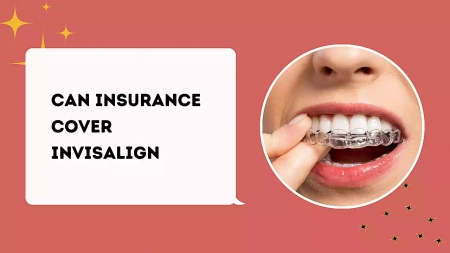Can Insurance Cover Invisalign – How Much Does Invisalign Cost with Insurance
Invisalign aligners are the most in demand. This set of aligners has shown to be efficient, barely perceptible, and easy to care for. Does insurance cover Invisalign? The sheer cost of this type of dental care raises this question.
READ ALSO: Insurance Agent – What Does An Insurance Agent Do
It would be best to familiarize yourself with your insurance policy before receiving Invisalign dental care. You may have never heard of Invisalign before or your dentist has just recently introduced it to you, but don’t worry. Orthodontic benefits cover this treatment sometimes, but it depends on the type of the plan. Fasten your seatbelt as you continue to learn more about this.

What is Invisalign?
Invisalign is an orthodontic procedure. In addition to straightening teeth, it eliminates the need for metal braces. These are essentially custom-made clear braces; they do nothing more than adequately cover your teeth while gradually moving them back into place.
Moreover, it is easier to take off and put on than traditional braces and less conspicuous. These days, there are more options than just metal braces to straighten your teeth, and Invisalign is one such alternative.
You may improve your smile by not needing metal braces or brackets when using it. It enhances the appearance and comfort of your teeth. Because it is barely noticeable, it also gives you more confidence. It is far more comfortable than traditional metal braces and is composed of plastic devoid of BFA.
YOU MAY LIKE: Automobile Insurance Quotations – How to get Automobile Insurance Quotations
How Much Does Invisalign Cost with Insurance?
Dental insurance coverage varies significantly in cost, but many will pay a portion of the Invisalign treatment. Some insurance companies only cover a fraction of the cost of Invisalign because it is a cosmetic procedure.
Your insurance company will determine the typical cost of dental insurance for Invisalign. Most dental insurers pay between 25% and 50% of the treatment costs, allowing you to pay the remaining amount.
There is usually a lifetime maximum amount covered by dental insurance coverage. This implies that you will be liable for any further expenses you may have as soon as you reach that financial threshold.
How Much Does Invisalign Cost Without Insurance?
If Invisalign is not covered in full by your dental insurance, the average treatment cost will likely be between $3,000 and $5,000. It could cost between $8,000 and $10,000 at most. Like most others, the method, schedule, and expenses of this orthodontic treatment plan will change according to your needs and the dentist treating you.
Companies that Cover the Cost of Invisalign
Some companies that cover the cost of Invisalign include:
- Cigna.
- Delta Dental.
- Humana.
- Aetna.
- USAA Dental.
This insurance depends on the companies.
What can Invisalign fix?
It can fix lots of dental issues, including:
- Crooked teeth.
- Small gaps between teeth.
- Crowded teeth.
- Normal overbite and underbite.
- Open bite.
These are some of the issues it can fix.
What can Invisalign not fix?
Invisalign can not fix the following issues:
- Rotated teeth: If crowding occurs, your teeth may turn within their sockets. While Invisalign can fix crooked teeth, it will not even function if a tooth’s rotation is just more significant than 20 degrees.
- Large gaps: Invisalign only closes minor spaces between your teeth; nothing can be done when the gap is too significant.
- Overbite and underbite: An overbite is when your upper teeth protrude over your lower teeth, and an underbite is when your lower teeth protrude past your upper teeth. In severe instances of both, it might not function at all. All that is required to resolve this problem is the use of metal braces.
- Extrusion and intrusion: Invisalign cannot address this issue, similar to the cases of overbite and underbite. To correct this, traditional braces are once again necessary.
Aside from all of these situations, wearing Invisalign will be challenging if you have very short teeth because the aligners won’t fit comfortably.
Frequently Asked Questions
Below are frequently asked questions.
Does Invisalign Damage Your Teeth?
Yes, there are risks involved. By destroying some of the tooth’s nerves, it may potentially result in root injury.
How can I Find out if my Insurance covers Invisalign Treatment?
In this regard, the best course of action is to speak with your insurance plan’s customer service representative, ask your benefits manager at work, or check your benefits package for orthodontic treatment. Sometimes, orthodontic treatment is covered by orthodontic coverage that you can purchase independently or by general health insurance instead of dental insurance.
Is insurance-covered Invisalign free?
No, it isn’t. Insurance does not fully cover Invisalign. Nevertheless, several insurance providers only pay a fraction of the price of Invisalign.
Conclusion
Applicants who want Invisalign are not limited by age because technology has advanced so that people of all ages can obtain the aligners, which is fantastic news for adults and teens alike.
